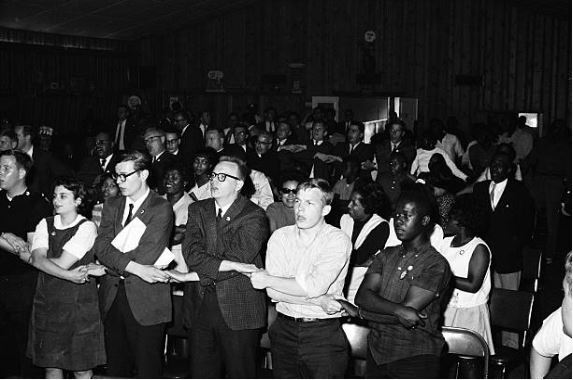
563
Downloads
7
Episodes
The podcast was created by Dion D. Banks and Kisha Petticolas, Cofounders of the Eastern Shore Network for Change. This collection of interviews was recorded and produced by ESNC board member Verlisha Taylor as a part of an event called “Reflections on Pine,” a series of events held in July 2017 to commemorate the civil unrest in Cambridge, Maryland, during the “Long Hot Summer of 1967”. These interviews focus on Cambridge during a time that, for many people, had been ignored. The first six episodes feature stories from Clarabell Tilghman, Barbara Pinder, William “Pee Wee” Jackson, Gloria Richardson, Fred Jackson, and Mayor Victoria Jackson-Stanley.“We will continue to challenge the perceptions of our community by reclaiming our narrative and sharing our truth. Our story of hope, faith, and change; a story of world-class leadership and a resilient community who decided not to accept the status quo as an option,” said Banks. “We are very proud of these first six episodes and hope more people will decide to share their stories with us. We encourage you to listen and connect with our interviewees as they share first-hand life experiences during civil unrest,” said Petticolas. ESNC’s mission is to raise awareness of issues in Dorchester County and creatively work with the community to inform, educate, and foster change, leading to social and economic empowerment. For more information about the organization, visit our website, http://www.esnccambridgemd.com.
Episodes
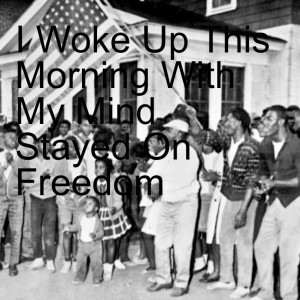
Sunday Sep 05, 2021
I Woke Up This Morning With My Mind Stayed On Freedom
Sunday Sep 05, 2021
Sunday Sep 05, 2021
WARNING: RECORDINGS CONTAIN HARMFUL AND OFFENSIVE WORDS AND PHRASES CONCERNING RACE, INCLUDING EXPLICIT LANGUAGE
Recorded during the 1963 unrest during the Civil Rights Movement in Cambridge, Maryland, these audio recordings capture the unedited sounds of both protesters and segregationists. The recordings were made primarily by reporter John Goldsmith for the District of Columbia radio station WWDC.
In the first recording, there are protesters in front of the Dorchester County Courthouse singing “Woke Up This Morning (With My Mind Stayed On Freedom),” “We Shall Overcome,” “Star Spangled Banner,” and the “Pledge of Allegiance.” Also included are three speeches from different individuals, one a reverend, about injustice and racial inequality that outline their goals for desegregation. There are also moments with segregationist songs and chants as they marched through the city.
In the second recording, primarily white segregationists expressed their reasons for counter-protesting the Cambridge Movement. This recording contains explicit and offensive words and language. Some white mob members who became angry with the WWDC reporter were later arrested and identified in the third recording featuring the WWDC broadcast.
The third recording features the WWDC broadcast that used clips from the first two audio recordings and includes additional reporting about the Cambridge Movement. Many individuals heard in the first two recordings are identified in the WWDC broadcast, including Bishop Williams and one of the white rioters who was arrested.
These recordings come from the J. Millard Tawes papers (2017.060) at the Nabb Research Center and are within the Creative Commons (with restrictions).
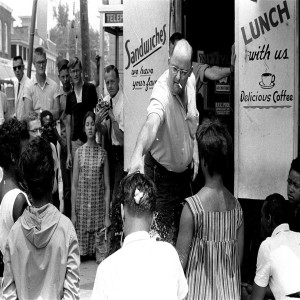
Sunday Sep 30, 2018
I’m Gonna Eat at the White Man’s Table
Sunday Sep 30, 2018
Sunday Sep 30, 2018
In this episode entitled “I’m Gonna Eat at the White Man’s Table,” we sat down with Clarabell Tilghman, who remembers relocating to Cambridge, Maryland as a small child from Georgia. She shares her memories of marching for Civil Rights on the front line.
Before 1964 when Congress enacted a law banning race discrimination in public accommodations, Title II of the Civil Rights Act of 1964, Cambridge, Maryland, was segregated, as was the rest of the nation. Segregation kept black and whites legally separated at places such as hotels, restaurants, gas stations, and places of entertainment. Segregation was based on race, color, or national origin.
We invite you to join us and listen as Ms. Tilghman shares a fearless story of faith and hope with us.
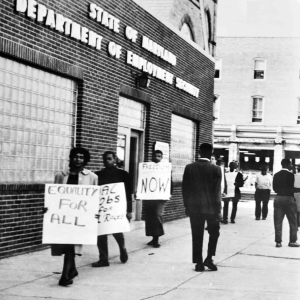
Sunday Sep 30, 2018
Breaking the Mold
Sunday Sep 30, 2018
Sunday Sep 30, 2018
In this episode entitled “Breaking the Mold”, we sat down with Barbara Pinder, a life long resident of Cambridge, Maryland. Ms. Pinder shares with us her experiences on the front line during the time of civil unrest. She gives us insight into the struggles of securing employment during the early times of desegregation.
Even with the passing of the Civil Rights Act of 1964, in the town of Cambridge, Maryland, the fight for racial equality was far from over. The fight for civil liberties became intense due to a lack of jobs, poor housing, and racial tension.
We invite you to listen as Barbara Pinder shares how she refused to give in to discrimination and not to accept the status quo.
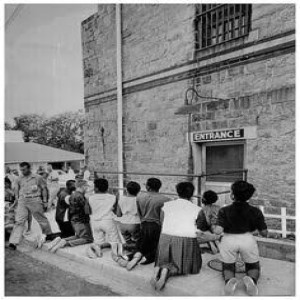
Sunday Sep 30, 2018
50 Years, No Impact
Sunday Sep 30, 2018
Sunday Sep 30, 2018
In this episode entitled “50 Years, No Impact”, we sat down with William "Pee-Wee" Jackson, who was a pre-teen during the civil unrest in Cambridge, Maryland. He's mostly remembered because he was arrested as a teen during the movement and jailed. This led to an uprising and march to the local jail demanding his release.
Mr. Jackson is a life-long resident of Cambridge and shares an interesting perspective of the changes in the community or lack thereof.
"Everybody wants to remember the fire, but nobody wants to remember the struggle before and after the fire," Jackson says. "The school was the target because the burning was more about bringing attention to poor education conditions. The fire just got out of hand."
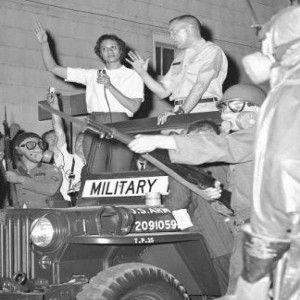
Sunday Sep 30, 2018
I'm Not Gonna Let Anyone Turn Me Around
Sunday Sep 30, 2018
Sunday Sep 30, 2018
In this episode entitled, "I'm Not Gonna Let Anyone Turn Me Around", we pay homage to Gloria Richardson Dandridge, nationally known Civil Rights Leader of the movement in Cambridge, Maryland.
THE MOVEMENT
In 1961, the Civil Rights Movement appeared in Cambridge, Maryland by way of the Freedom Riders. Cambridge was thoroughly segregated and at the time, the unemployment rate was more than 40%. Gloria Richardson’s teenage daughter, Donna, became involved with the Student Nonviolent Coordinating Committee’s effort to desegregate public accommodations.
While Gloria was interested in the cause, she was not committed to some of their fundamentals. When the SNCC-led protests faltered in 1962, Gloria and other parents created the Cambridge Nonviolent Action Committee (CNAC) which became the only adult-led SNCC affiliate in the civil rights organization’s history. CNAC enlarged the scope of grievances to include housing and employment discrimination and inadequate health care. Richardson was selected to lead CNAC.
This Richardson-led effort differed from most other civil rights campaigns of the era. It took place in a border state rather than the Deep South. It addressed a much wider array of issues rather than the one or two that motivated other campaigns.
Martial Law
Protests and civil unrest in 1963, prompted Maryland Governor J. Millard Tawes to send in the Maryland National Guard. The Guard remained in the city, which was effectively under martial law, for over a year. The Cambridge Movement also drew the attention of U.S. Attorney General Bobby Kennedy who attempted to broker an agreement between Cambridge’s white political leaders and Richardson’s CNAC.
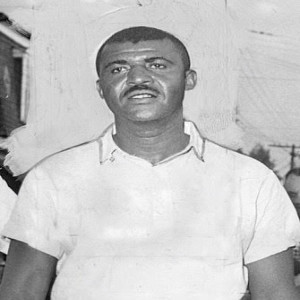
Sunday Sep 30, 2018
We are Soldiers in the Army
Sunday Sep 30, 2018
Sunday Sep 30, 2018
In this episode entitled, "We are Soldiers in the Army", we honor Fred Jackson, a leader of the Cambridge, Maryland Civil Rights Movement.
Frederick Douglass Jackson Jr. was born in Cambridge Maryland on December 18, 1930. He was the youngest of three sons born to Frederick D. Jackson Sr. and Mable Arizona Victoria Burroughs Jackson.
in 1961, the Freedom Riders came to Cambridge and Fred said to Betty, "there's going to be trouble now". Because of his known commitment to getting a better education for his children, Fred under the leadership of his friend Gloria Richardson Dandridge, became very involved in the Civil Rights Movement of Cambridge.
Fred attended protest organization meetings, protest marches, and stood with Ms. Richardson-Dandridge, often referred to as the Lieutenant of the Cambridge Movement.
We honor and celebrate the courageous leadership and commitment of Fred Jackson during the Civil Rights Movement of the 1960's. During the time of racial segregation, Fred became one of the strongest advocates for economic rights, as well as desegregation.
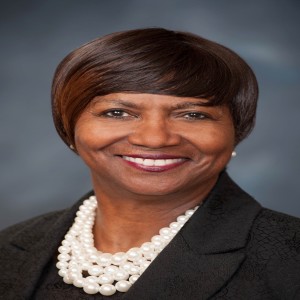
Sunday Sep 30, 2018
This Little Light
Sunday Sep 30, 2018
Sunday Sep 30, 2018
In this episode entitled "This Little Light" pays tribute to Mayor Victoria Jackson - Stanley, 1st African American and female mayor of Cambridge, Maryland.
Victoria Jackson-Stanley was born August 20th, 1953 to Fred and Betty Jackson during the time of segregation in Cambridge, Maryland. She was among the first black students to attend the previously all-white Cambridge High School.
The town had a history of racial unrest, with racial tension making headlines in the 1960's. By the 1970's, the town and schools were integrated.
During a time of racial segregation, Mayor Jackson-Stanley had firsthand experiences of the movement provided by her father, Fred Jackson, who became one of the strongest advocates for economic rights as well as desegregation.
On June 10, 2008, in a non-partisan election, Jackson-Stanley and incumbent Mayor Cleveland Rippon won the right to face each other in the July general election. Residents agreed that economic growth and other concerns were more important than gender and race.
Jackson-Stanley was sworn in on July 21, 2008, for her 1st term, and again on July 2012 for her second and is currently in her third term after being reelected in 2016.
We honor and celebrate the leadership and commitment of Mayor Victoria Jackson-Stanley. She is the hope and the dream of those who fought for our rights and freedom.
